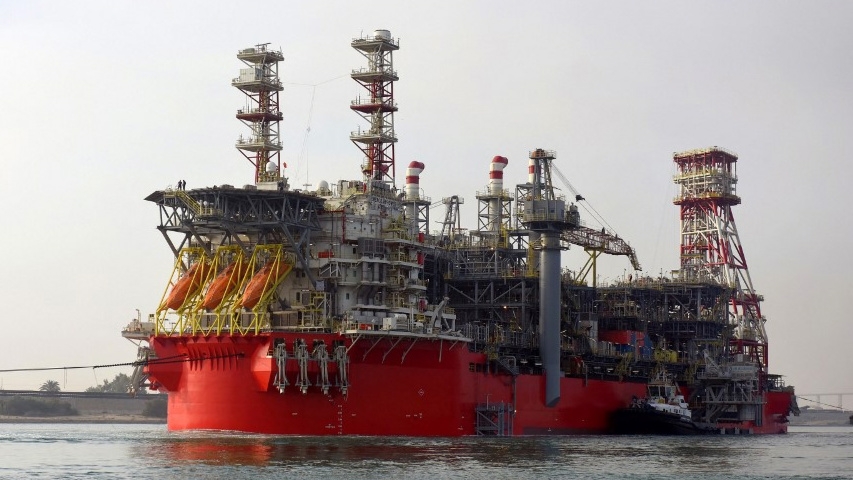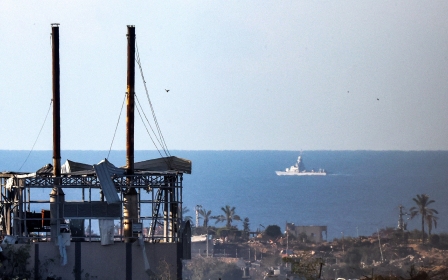How a regional war could devastate Middle Eastern economies

Tehran’s retaliatory missile attack on Israel this month marked a serious escalation in the Middle East conflict, coming in direct response to Prime Minister Benjamin Netanyahu’s aggressive drive to target the “axis of resistance”.
Netanyahu remains determined to drag the United States into a confrontation with Iran, even at the risk of provoking a regional war that would threaten global stability.
He has been working towards this goal for years. A decade ago, Netanyahu advocated relentlessly to block the 2015 Iran nuclear deal; he has even called for strikes on Iranian nuclear sites.
Today, a year into Israel’s assault on Gaza, he continues to provoke a broader regional war by attacking top Iranian military officials and their allies in Hezbollah and Hamas.
The Israeli escalation reached a fever pitch last month with the coordinated explosions of pagers and walkie-talkies in Lebanon, followed by the assassination of Hezbollah leader Hassan Nasrallah in a massive attack on Beirut.
New MEE newsletter: Jerusalem Dispatch
Sign up to get the latest insights and analysis on Israel-Palestine, alongside Turkey Unpacked and other MEE newsletters
While Netanyahu might believe that dragging the US into a war with Iran could not only revive his political career, but also crown him as the Israeli politician who crafted the Middle East in favor of Israel's security, such a move would be catastrophic for the region and the world.
Its implications would have negative political, economic and humanitarian repercussions, fuelling the destabilisation and potential collapse of ruling systems. The disruption of trade, along with widespread displacement and loss of life, would overwhelm already exhausted regional aid systems.
Ripple effects
The Middle East is a region of unique geopolitical significance, hosting three of the world’s most strategic energy chokepoints: the Strait of Hormuz, the Suez Canal and the Bab el-Mandeb strait, which together facilitate around half of the international maritime oil trade. Their disruption would pose a major threat to the stability of global energy markets.
While western countries have diverse sources for oil imports, they would not be immune from price shocks and supply-chain issues. At a time of significant economic pressure and rampant inflation, the ripple effects could foment social unrest.
Follow Middle East Eye's live coverage of the Israel-Palestine war
Across the Middle East, the effects of a spreading conflict that could shut down oil routes would be severe. Countries that depend on petroleum exports to support their economies - such as Iraq, Kuwait, Saudi Arabia and Qatar, among others - would face a crisis.
Bahrain, which ships through the Strait of Hormuz, relies on oil exports for more than 60 percent of its national budget; a closure would be catastrophic for the small Gulf state’s economy.
Saudi Arabia, the world’s largest oil exporter, ships more than six million barrels a day through the strategic Gulf waterways, raking in hundreds of billions of dollars in annual revenue.
The UAE produces around three million barrels a day and is looking to nearly double that within the next few years. Qatar exports $100bn worth of natural gas per year, and Kuwait counts on $62bn annually to cover 90 percent of its government revenues. While Egypt’s Suez Canal Authority saw revenues of more than $9bn last year, it uses Bab el-Mandeb to export 30 percent of the natural gas passing through its waterways.
A prolonged conflict could jeopardise the delicate balance that exists, leading to supply shortages and inflation
All of these countries are highly vulnerable to disruptions in these critical shipping routes, and an expansion of war that leads to closures would deal a significant and wide-ranging blow.
The sudden loss of revenue, combined with a reduction in imported goods for domestic consumption, could foment social unrest, just as it could in the West. The situation would be particularly acute for Middle Eastern states that rely heavily on subsidies; a prolonged conflict could jeopardise the delicate balance that exists, leading to supply shortages and inflation.
With forces in more than a dozen countries across the Middle East, the US also maintains a significant strategic presence in the region. In the event of an expanded war, American bases would become targets for hostile actors, potentially drawing the US into a direct confrontation and leading to further destabilisation.
Foreign investment in the Middle East - a key aspect of strategies such as Saudi Vision 2030, which aims to diversify the country’s economy and move away from oil dependency, relying on around $270bn of foreign investments - would likely dry up as companies pulled out due to instability. All of this would create an era of heightened uncertainty in an already tumultuous region.
The views expressed in this article belong to the author and do not necessarily reflect the editorial policy of Middle East Eye.
Middle East Eye delivers independent and unrivalled coverage and analysis of the Middle East, North Africa and beyond. To learn more about republishing this content and the associated fees, please fill out this form. More about MEE can be found here.





